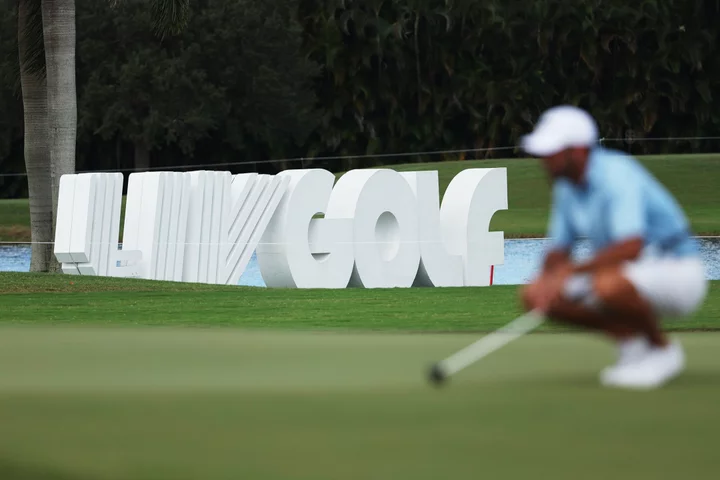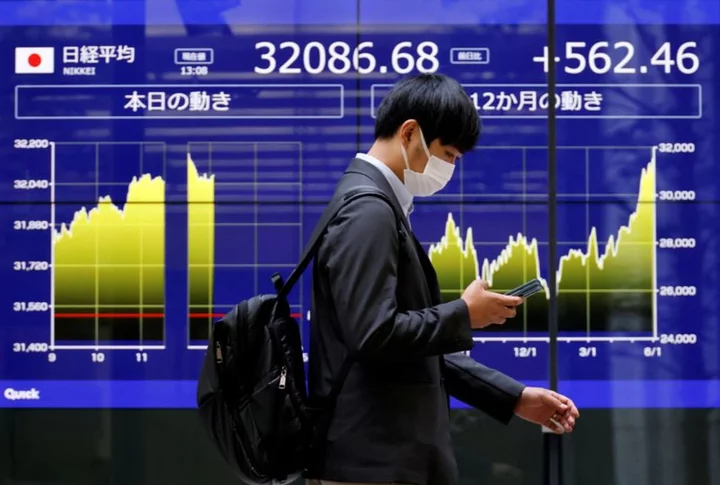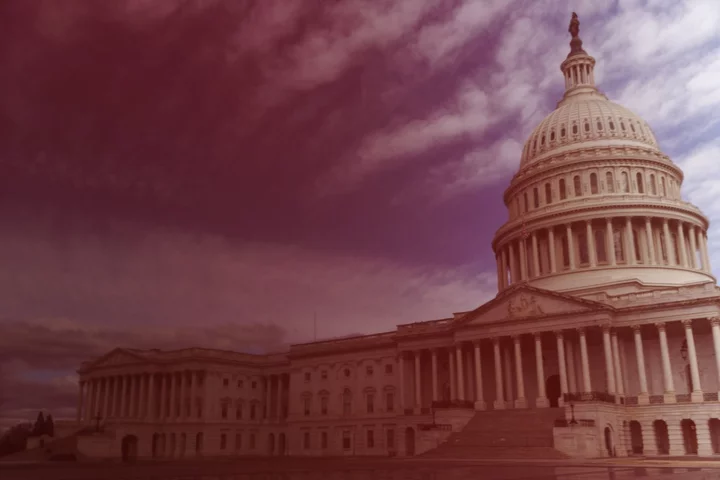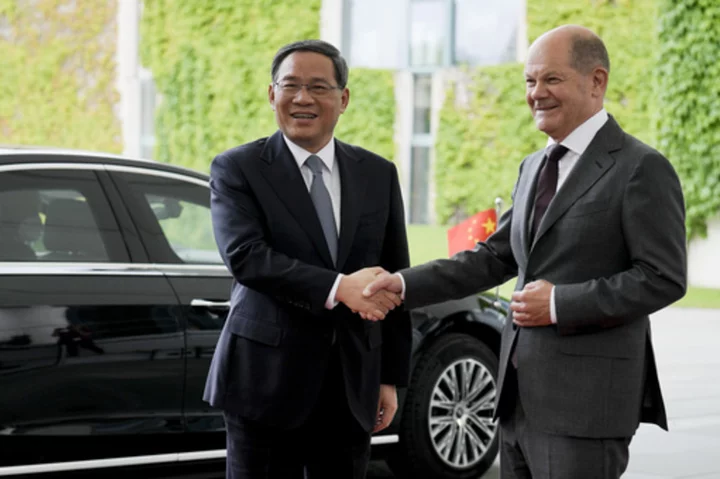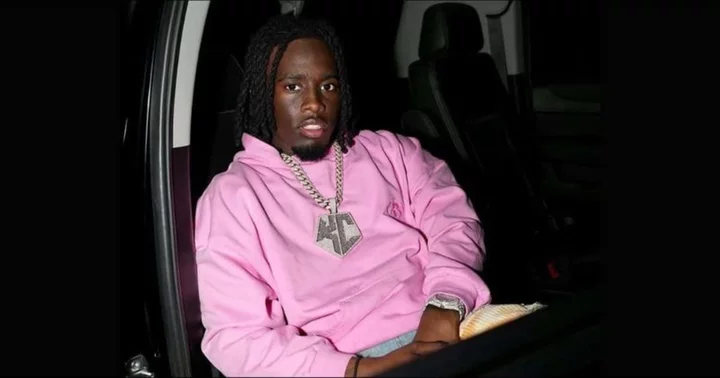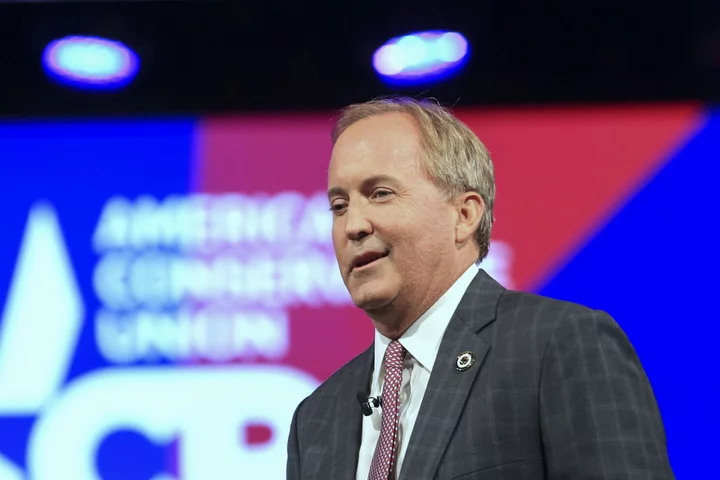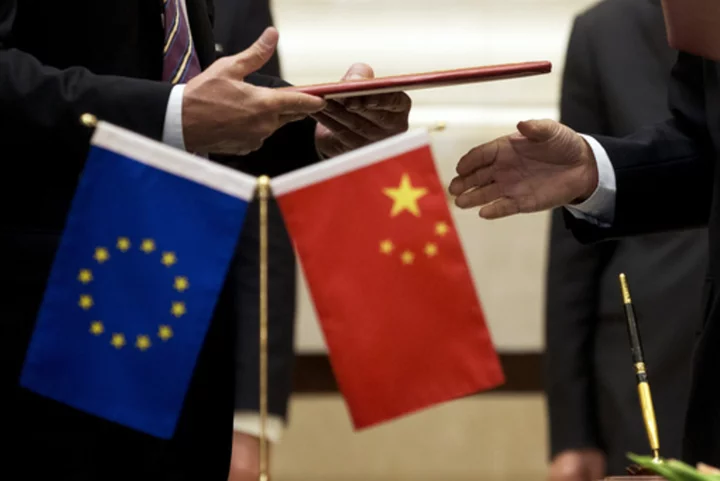The PGA Tour and President Joe Biden have learned the same hard lesson in recent months: Saudi Arabia is too rich and consequential to shun.
As a candidate for president, Biden promised Saudi Arabia would “pay the price” for its poor human rights record, just as PGA Commissioner Jay Monahan had called the Saudi-backed LIV Golf league a blatant attempt to sportswash the kingdom’s past sins. In the end, both were forced to eat their words.
The surprise announcement last week that the PGA and LIV would set aside their dispute and merge showed that Saudi Arabia and its crown prince, Mohammed bin Salman, had gained the upper hand yet again in the push-and-pull between a global superpower and an oil-rich nation that was long seen as the junior partner.
Asked to discuss the deal, the White House declined to comment on a private merger, though it’s one that will have to undergo antitrust scrutiny.
In reality, it’s much more than another deal. It symbolizes how Biden has had to give up on a pledge to make Saudi Arabia face consequences for its rights abuses, most vividly symbolized by the murder of dissident columnist Jamal Khashoggi. It demonstrated again how foreign powers — think China, with its TikTok video-sharing app — are exerting soft power on the US, rather than the reverse.
And it seemed to put to rest the question of whether the US can pursue a human-rights-first policy with the rest of the world if the companies on the front lines of that US soft-power influence — its sports leagues and entertainment industry — don’t have any interest in playing along.
“It does demonstrate two important phenomena — the tension between high-profile US brands’ business decisions and government policy, especially important with respect to China, and the quenchless desire of this Saudi government to discredit the US,” said Kori Schake, director of foreign and defense policy studies at the American Enterprise Institute, who previously worked in the State Department and Pentagon.
“Saudi’s leader is reveling in humiliating the Biden administration,” she said.
Read more: PGA Golf Merger Is Saudi Arabia’s Biggest Soft Power Win Yet
Details of the agreement are thin, only that it will be a “new, collectively owned for-profit entity,” according to a statement. But it was a dramatic reversal for the PGA and Monahan, who had previously criticized LIV for paying multimillion-dollar sums for PGA players to leave the tour.
When asked about the deal at a press conference on Tuesday, Biden dodged with a joke — making a putting motion and saying he was going to join the PGA. It underscored the tricky balance that the president, a sometimes-weekend golfer, must maintain between not wanting to upset the Saudis and not wanting to offend a political constituency at home — the families of victims of the Sept. 11 attacks and advocates, including on Capitol Hill, for Khashoggi and his widow.
The group 9/11 Families United accused the PGA and Monahan of “taking billions of dollars to cleanse the Saudi reputation so that Americans and the world will forget how the Kingdom spent their billions of dollars before 9/11 to fund terrorism, spread their vitriolic hatred of Americans, and finance al Qaeda and the murder of our loved ones.”
“Make no mistake – we will never forget,” the group said. Saudi Arabia has long denied any responsibility for the Sept. 11 attacks, in which 15 of 19 hijackers were Saudis.
The discomfort over the deal was plain to see on Capitol Hill, where Democrats’ position in recent years has been to advocate Biden’s argument of Saudi Arabia as a pariah and seek to impose limits on US weapons sales to the country.
Senator Richard Blumenthal of Connecticut called the PGA-LIV deal “absolutely abhorrent.” The No. 2 Senate Democrat, Dick Durbin of Illinois, on Wednesday recalled Saudi officials’ refusal to comply with investigations in the wake of Sept. 11.
“I have this arms-length attitude toward Saudi Arabia,” he told reporters.
Trump’s Greens
The PGA-LIV deal was a symbolic as well as a literal victory for former President Donald Trump’s approach to Saudi Arabia, which focused on keeping the kingdom close through repeated arms sales and business dealings. Trump, an avid golfer who owns courses that have benefited by hosting LIV tournaments, praised the merger as “a big, beautiful, and glamorous deal.”
The timing of the announcement was also hard to ignore: It came as Secretary of State Antony Blinken was in Saudi Arabia for a meeting of countries that are part of a coalition fighting Islamic State terrorists. A crucial subtext of that visit was the concern about Saudi Arabia’s human rights record.
Some analysts suggested the deal may have been a deliberate jab at the Biden administration, payback for the humiliation that he had subjected the crown price to during the 2020 campaign. Blinken, like Biden, had threatened “consequences” for a surprise Saudi decision to cut oil production last year.
“Human rights are always on the agenda for the United States,” Blinken said at a briefing in Riyadh. “It’s who we are. And indeed, I discussed human rights in our meetings with our Saudi counterparts over the past few days, and also made clear that progress on human rights strengthens our relationship.”
There was no mention of the price cuts or of Khashoggi. That didn’t impress those who have followed the region for years.
“The secretary’s press conference was as bland, oblique and noncommittal a response to the human rights question that I’ve ever seen in the face of what’s the worst suppression of human rights certainly since the country was founded in the 1930s,” said Aaron David Miller, a senior fellow at the Carnegie Endowment for International Peace.
“We’re simply not prepared to allow our geopolitical and strategic interests to be undermined or set at cross-purposes with our values and the Saudis are the key embodiment of that,” Miller said. “It’s an acid test.”

